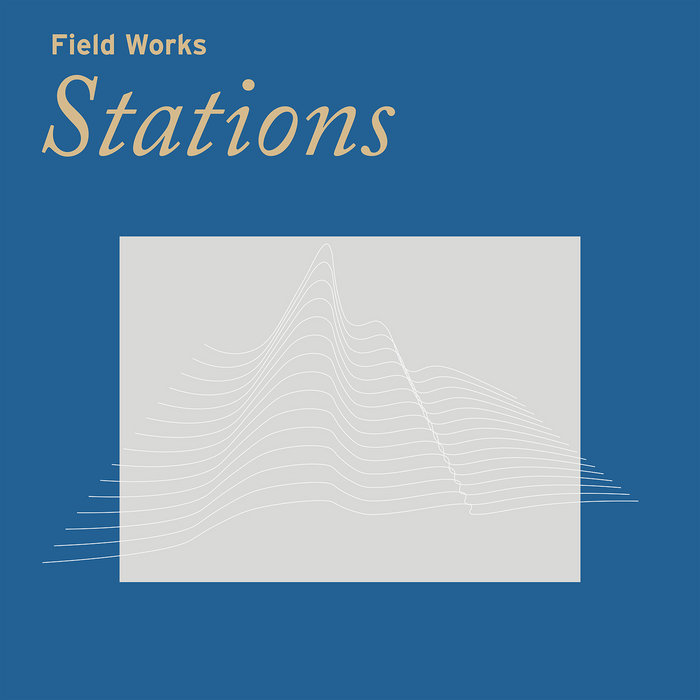
Oceanator "Nothings Ever Fine"
Though Nothing’s Ever Fine’s earliest song dates back to 2014, and several others were written on or after tours in the intervening years, Elise Okusami reconfigured and demoed these songs alone at home between 2019 and 2020. Thanks to the covers recording, live streaming, and documentary scoring she partook in over the past few years, as well as wisdom gained from running the record label Plastic Miracles, Okusami brought a leveled-up ear for production to this album. She also found herself reinvigorated on the guitar, unafraid to tackle some of Oceanator’s most ambitious and masterful playing yet. On the album itself, in addition to performing guitars, synths, bass, keys, and vocals, she serves as co-producer. That role is shared with her brother and longtime bandmate Mike Okusami, as well as her friend Bartees Strange. Working at Falls Church, VA’s 38 North and at Mike’s space in Maryland, the trio eschewed traditional live tracking in favor of recording parts separately as overdubs. They focused on sonic exploration and worldbuilding, dialing in sounds and experimenting with a Wurlitzer, B3, Leslie, and mellotron, among other synths and boutique effects. While the Okusami siblings have decades of collaboration and trust built up between them, which informs Mike’s seamless contributions on bass, drums, and piano, Bartees proved to be a trusted third partner, matching Mike’s excitement on the technical side and working closely with Okusami to find the dream guitar tones she sought—equal parts crystalline and crushing.

Jesse Mac Cormack "SOLO"
In the deepest depths of the Pandemic, with a relationship in its ending, Jesse Mac Cormack recalls sending a text to his therapist: “I’m not meeting with you every week just to hang out,” the bilingual musician wrote. “Je veux que ça saigne”—for the work to “bleed.” To mean something. The next time they met, his therapist explained: “That message you sent me? You were really sending it to yourself. You were taking a decision.”
That decision—to move forward, to change and have the courage to love yourself—is the journey of the past two years and also of SOLO, which gleams and shivers and pulses with the heartbeat of an artist in beautiful evolution. A softer album than his debut LP Now (2019), it is nonetheless riven by the fear and flood of disappointment that marked these recent years—and the singer’s childhood.
As on Now, Mac Cormack plays almost every instrument himself, surrounded by a soundtrack of one. Across 10 rippling tracks, the singer summons a sonic world that’s razor-edged and intimate, influenced by the textured electronics of James Blake, Little Dragon, Caribou and SUUNS. Drum machines stutter under blooms of synths; curses float below swirls of loving sound.

Devon Kay & The Solutions "Grieving Expectation"
Grieving Expectation is the 4th studio album by Devon Kay & the Solutions and it’s first on Pure Noise Records. The band recorded and engineered the album themselves with their respective home recording equipment and was mixed and mastered by longtime collaborators Mike Kennerty (All American Rejects) & Erik Atwell (Telethon), respectively. The album is a collection of maximalist pop punk songs pulling from every genre imaginable. Masking nihilistic musings with “sugar in your teeth” pop music has become a mainstay for Devon Kay & the Solutions and with Grieving Expectation they’ve expanded on that idea ten fold.

Field Work "Stations"
What does the Earth sound like? In Stations, the 10th volume in the Field Works series, producer Stuart Hyatt approaches that question with a team of scientists working on the EarthScope experiment. Using sophisticated ground recording devices, Field Works has created a new type of music in which human voices sing along with the actual voice of the Earth. Stations features an all-star ensemble of vocalists and instrumentalists, including Hanna Benn, Janie Cowan, Masayoshi Fujita, Stuart Hyatt, Laraaji, Qasim Naqvi, and Brad Weber.